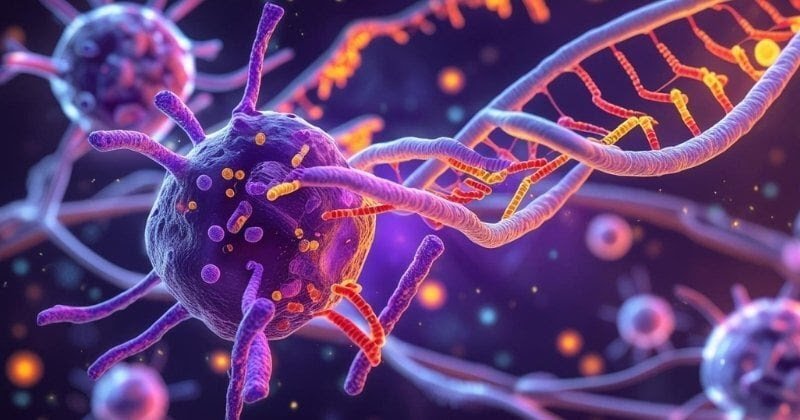Duke Street Bio Secures FDA Fast Track Designation for DSB2455 in TNBC-Related Brain Metastases
25 June 2025 | Wednesday | News

DSB2455 is a potentially best-in-class agent within the PARP1-selective inhibitor space, offering a differentiated profile that may expand therapeutic possibilities in hard-to-treat indications. The compound is a next-generation, highly PARP1-selective inhibitor with demonstrated brain penetrance and potent anti-tumour activity in preclinical models of homologous recombination-deficient cancers, including brain metastases.
The Fast Track designation is intended to facilitate the development of new therapies for serious conditions where there is significant unmet medical need. It allows for more frequent interactions with the FDA, eligibility for rolling review of an NDA, and potential consideration for Priority Review or Accelerated Approval.
“Receiving Fast Track designation for DSB2455 represents an important milestone in our mission to develop more targeted and effective therapies for patients with limited treatment options,” said Alan Wise, Chief Executive Officer of Duke Street Bio. “Next-generation PARP1-selective inhibitors such as DSB2455 are expected to offer a wider therapeutic window than earlier PARP inhibitors, potentially enabling broader use both as monotherapy and in combination with other anti-cancer agents across a range of tumors.”
“DSB2455’s ability to achieve therapeutically relevant concentrations in the CNS represents a key differentiator,” added Dónal Landers, Chief Medical Officer of Duke Street Bio. “This could offer a new treatment option for patients with secondary HRD brain metastases, where clinical need remains high and current therapeutic choices are limited.”
Most Read
- Management of Relapsed/Refractory Multiple Myeloma
- 2025 Drug Approvals, Decoded: What Every Biopharma Leader Needs to Know
- BioPharma Manufacturing Resilience: Lessons From Capacity Expansion and Supply Chain Resets from 2025
- APAC Biopharma Review 2025: Innovation, Investment, and Influence on the Global Stage
- Top 25 Biotech Innovations Redefining Health And Planet In 2025
- How Health Systems Are Reshaping Drug Adoption, Partner Models, and Market Access in 2026
- The New AI Gold Rush: Western Pharma’s Billion-Dollar Bet on Chinese Biotech
- Single-Use Systems Are Rewiring Biopharma Manufacturing
- The State of Biotech and Life Science Jobs in Asia Pacific – 2025
- Asia-Pacific Leads the Charge: Latest Global BioSupplier Technologies of 2025
- Invisible Threats, Visible Risks: How the Nitrosamine Crisis Reshaped Asia’s Pharmaceutical Quality Landscape
Bio Jobs
- The State of Biotech and Life Science Jobs in Asia Pacific – 2025
- Avantor’s New CEO Ligner Aims to Unlock Global Potential and Deliver Shareholder Value
- AstraZeneca Commits $50 Billion to U.S. Expansion by 2030 in Biggest-Ever Global Investment
- Thermo Fisher, SAMRC, and South Africa’s Department of Science and Innovation Launch CATIR to Nurture Next-Gen Scientists
- Cube Biotech Appoints Former Sartorius CEO Dr. Joachim Kreuzburg to Board of Directors
- FDA’s AI Transition Marks a Turning Point in Drug Review: Industry Faces Pressure to Adapt Amid 20% Workforce Cut
- WuXi XDC Completes Mechanical Build of Singapore Bioconjugate Manufacturing Hub
News
Editor Picks











